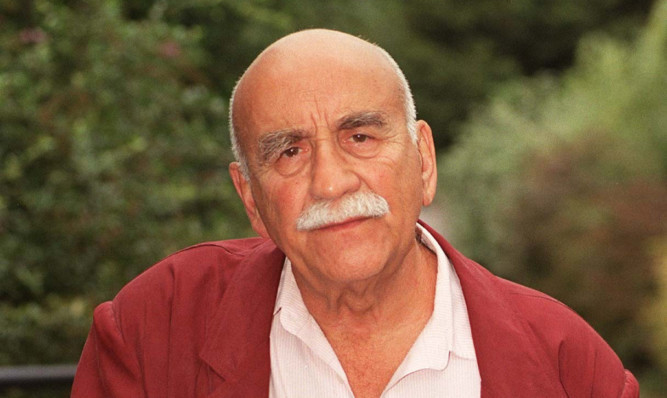Actor Warren Mitchell, best known for starring as Alf Garnett, has died aged 89.
A statement from the Till Death Us Do Part star’s family said: “Sadly we can confirm Warren Mitchell died in the early hours of Saturday November 14 surrounded by his family.
“He has been in poor health for some time, but was cracking jokes to the last.”
Warren famously played the loud-mouthed, chauvinistic, homophobic, sexist, racist Alf Garnett in the celebrated TV series Till Death Us Do Part, was in reality a left-wing socialist, the antithesis of the character he immortalised.
Even 40 years after this successful and racy BBC sitcom was running, Mitchell continued to be stopped in the street by people who really thought he was the working-class, anti-Semitic Tory bigot he portrayed, even though he himself was Jewish.
The British public warmed to Alf Garnett, probably because he could be identified with the kind of reactionary and prejudiced figure found all over the country.
Sometimes the satire of the show was lost because people regarded Garnett as a loveable old rogue whose views were quite acceptable.
Even so, he once admitted he was “a bit” like Alf Garnett himself.
“Opinionated male chauvinistic pig at times, I suppose. As my wife Connie once said to me, ‘You are like that awful Alf Garnett, only he’s funny and you’re not’.”
Warren Mitchell was born Warren Misell in Stoke Newington, north London, on January 14 1926. He served in the Royal Air Force and completed his navigator training just as the war ended.
He had been reading physics at University College, Oxford, but quit that before completing the course, and became a professional actor in 1951 after two years at the Royal Academy of Dramatic Art.
For a time he sold socialist newspapers in the street, crying out with his polished, actor-trained voice. That was when he developed his “working class” voice, which, he claimed, helped him sell more papers.
But his big break did not come until 1965 – 14 years after he became a professional actor – with the role of Alf Garnett in a Comedy Playhouse play, which developed into the TV series.
Some of the jokes would scarcely be acceptable today, including: “She must have been on the Pill, the Virgin Mary – she only had one kid in 2,000 years”, and “No wonder Gandhi wouldn’t eat his dinner – they gave him Indian.”
The character, although a Tory anti-socialist through and through, was no fan of Margaret Thatcher, believing a woman’s place was “chained to the bloody kitchen sink”, and blaming her husband Denis for not telling her “to keep her place”.
Garnett was a supporter of West Ham United, but Mitchell was a Tottenham Hotspur man.
Although Mitchell is identified almost exclusively with Alf Garnett, he played a wide variety of roles during his career. Other TV appearances came in Lovejoy, Waking The Dead, Kavanagh QC and Gormenghast.
On stage he received extensive critical acclaim for his performances in Arthur Miller’s Death Of A Salesman and Harold Pinter’s The Caretaker and The Homecoming.
Mitchell suffered a stroke in August 2004 but was back on stage a week later, performing in Miller’s The Price.
He was also a distinguished supporter of the British Humanist Association, saying that although he was Jewish, and proud to be one, he was an atheist as well.
In February 2007, he played a leading role in the partially successful campaign to ban open-air concerts at Kenwood in London, because of the noise to the homes, including his own, in nearby Hampstead.
As a result of the protests, the organisers were ordered to reduce the number of concerts to a level where it was not viable to hold any at all.
